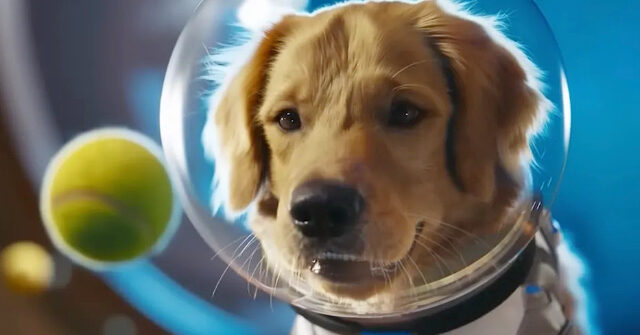OpenAI’s artificial intelligence-generated video maker called “Sora 2” has launched and it is throwing Hollywood and the entertainment industry into full-blown panic with “nightmare” predictions of the looming end of the showbiz industry as we know it.
Sora 2 is OpenAI’s latest text-to-video generation program, which allows a user to create realistic, movie-quality video by just talking through the scenes desired while the software generates the images. But what is shocking everyone in Hollywood is the ease with which Sora 2 can plunk copyrighted characters and realistic representations of known actors right into the scenes generated by users. And it can be done in minutes, not months or years.
Some of the video generated by Sora 2, for instance, have placed Pokémon character Pikachu into famous movies, such as Saving Private Ryan.
The latest version is far from perfect. It sometimes struggles with dialog, and some have noticed when you slow the video down, a lot of strange glitches appear to flick in and out of the frame — but they are often glitches that go unseen when the video is played in normal time, according to the Hollywood Reporter.
But the program is still shockingly good for what it can do and it has Hollywood on edge, fearful that anyone with access to Sora 2 can create a cinematic quality video by just talking through their scenes with the program. No studios, producers, actors, directors, costumers, musicians, or artists of any kind required.
“Sora 2 can do things that are exceptionally difficult — and in some instances outright impossible — for prior video generation models: Olympic gymnastics routines, backflips on a paddleboard that accurately model the dynamics of buoyancy and rigidity, and triple axels while a cat holds on for dear life,” the company said in a statement upon the release of Sora 2.
While most are marveling at the technology and what it can do, others are wondering about the legality of it all. After all, Sora 2 does not exactly create new video. It operates by working through the images, sounds, colors, and video that it has in its vast storage network, then adapts all that into the video requested by the prompts input by a user.
So, if a user asks for Scarlett Johannsen having a Star Wars lightsaber duel with Mickey Mouse, that is exactly what the program could spit out. But the question is, can that be legal? Can Sora 2 legally use Johannsen’s image? Can it restyle a Star Wars scene? Can it legally depict Mickey Mouse? Can it use other’s intellectual property without paying for it?
Social media users are claiming that as long as they are not trying to make money off those images, then they should be allowed “fair use” of the copyrighted material. But rights holders understandably don’t want anyone using their properties without permission and fees paid for their use.
Unfortunately, there aren’t any legal precedents set in law yet, so it may be the wild west for a while until the legal landscape catches up to technology.
Rights holders are already seeking what is being termed “opt outs,” whereby their copyrighted material will be excluded from the basic training sources used to train and create Sora 2’s video output. But it’s all a legal gray area.
“The law moves slowly, far slower than technology, which is why you see these tech companies racing ahead of it a bit,” business lawyer and podcaster Richard Hoeg told IGN. “My best guess is that OpenAI is probably going to be okay long term on the training sets they used (assuming they weren’t pirated), and that the ‘opt out of training’ option therefore won’t do much of anything. Where they really need to concern themselves is on the output side and/or if they are marketing their software’s abilities with protected content themselves.”
For now, Sora 2 is not open for use by just anyone. It is currently being distributed on an invite-only basis with the company deciding who will be allowed to access it. And it is also only being offered in Canada and the U.S. On top of that, it is only available for use by ChatGPT account holders.
Hollywood is very worried, though. Left-wing online magazine Slate, for instance, published a piece filled with doom and gloom, entitled, A.I. Is Ready to Crush Hollywood as We’ve Known It, which predicts that these AI programs will make the studios irrelevant and give every last human being on earth the capability to create their own movies.
“This is an existential moment for human-created entertainment as we know it. If actors, talent bookers, and studio executives cannot hold the line now, at this very moment, the battle to preserve the humanity inherent to art will be irredeemably set back,” the article concludes.
Follow Warner Todd Huston on Facebook at: Facebook.com/Warner.Todd.Huston, Truth Social @WarnerToddHuston, or at X/Twitter @WTHuston
Read the full article here



